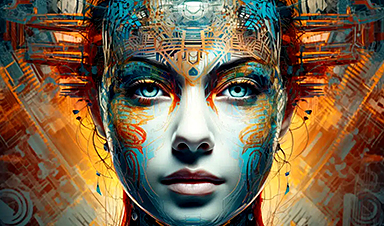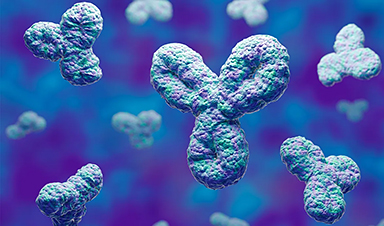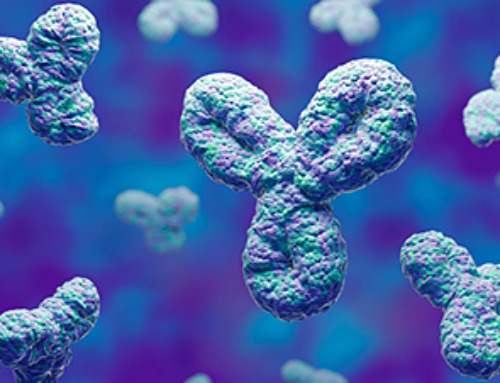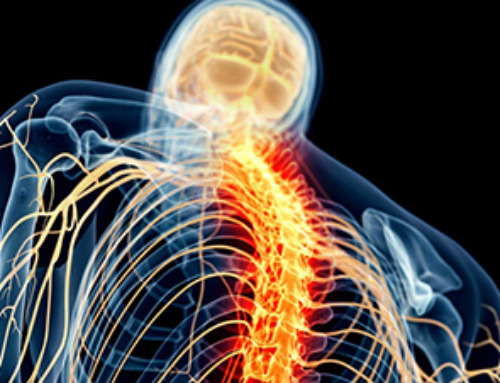Summary: AI’s remarkable abilities, like those seen in ChatGPT, often seem conscious due to their human-like interactions. Yet, researchers suggest AI systems lack the intricacies of human consciousness. They argue that these systems don’t possess the embodied experiences or the neural mechanisms humans have. Therefore, equating AI’s abilities to genuine consciousness might be an oversimplification.
Key Facts:
- AI systems, despite their sophisticated responses, do not have the embodied experiences characteristic of human consciousness.
- Current AI architectures lack essential features of the thalamocortical system, vital for mammalian conscious awareness.
- Biological neurons, responsible for human consciousness, are far more complex and adaptable than AI’s coded neurons.
Source: Estonia Research Council
The rise of the capabilities of artificial intelligence (AI) systems has led to the view that these systems might soon be conscious. However, we might underestimate the neurobiological mechanisms underlying human consciousness.
Modern AI systems are capable of many amazing behaviors. For instance, when one uses systems like ChatGPT, the responses are (sometimes) quite human-like and intelligent. When we, humans, are interacting with ChatGPT, we consciously perceive the text the language model generates. You are currently consciously perceiving this text here!
The question is whether the language model also perceives our text when we prompt it. Or is it just a zombie, working based on clever pattern-matching algorithms? Based on the text it generates, it is easy to be swayed that the system might be conscious.
However, in this new research, Jaan Aru, Matthew Larkum and Mac Shine take a neuroscientific angle to answer this question.
All three being neuroscientists, these authors argue that although the responses of systems like ChatGPT seem conscious, they are most likely not.
First, the inputs to language models lack the embodied, embedded information content characteristic of our sensory contact with the world around us. Secondly, the architectures of present-day AI algorithms are missing key features of the thalamocortical system that have been linked to conscious awareness in mammals.
Finally, the evolutionary and developmental trajectories that led to the emergence of living conscious organisms arguably have no parallels in artificial systems as envisioned today.
The existence of living organisms depends on their actions and their survival is intricately linked to multi-level cellular, inter-cellular, and organismal processes culminating in agency and consciousness.
Thus, while it is tempting to assume that ChatGPT and similar systems might be conscious, this would severely underestimate the complexity of the neural mechanisms that generate consciousness in our brains.
Researchers do not have a consensus on how consciousness rises in our brains. What we know, and what this new paper points out, is that the mechanisms are likely way more complex than the mechanisms underlying current language models. For instance, as pointed out in this work, real neurons are not akin neurons in artificial neural networks.
Biological neurons are real physical entities, which can grow and change shape, whereas neurons in large language models are just meaningless pieces of code. We still have a long way to understand consciousness and, hence, a long way to conscious machines.
News
Specially engineered antibody delivers RNA therapy to treatment-resistant tumors
Elias Quijano, PhD; Diana Martinez-Saucedo, PhD; Zaira Ianniello, PhD; and Natasha Pinto-Medici, PhD, there are 25 other contributors, most from Yale's Department of Therapeutic Radiology and from the departments of genetics, molecular biophysics and [...]
Vaccinated women face fewer cervical cancer risks
New data from Denmark shows the HPV vaccine’s powerful long-term impact, while also revealing why cervical cancer screening is still essential. A Danish study published in the journal Eurosurveillance reports that women who received the human [...]
3D-printed implant offers a potential new route to repair spinal cord injuries
A research team at RCSI University of Medicine and Health Sciences has developed a 3-D printed implant to deliver electrical stimulation to injured areas of the spinal cord, offering a potential new route to [...]
Nanocrystals Carrying Radioisotopes Offer New Hope for Cancer Treatment
The Science Scientists have developed tiny nanocrystal particles made up of isotopes of the elements lanthanum, vanadium, and oxygen for use in treating cancer. These crystals are smaller than many microbes and can carry isotopes of [...]
New Once-a-Week Shot Promises Life-Changing Relief for Parkinson’s Patients
A once-a-week shot from Australian scientists could spare people with Parkinson’s the grind of taking pills several times a day. The tiny, biodegradable gel sits under the skin and releases steady doses of two [...]
Weekly injectable drug offers hope for Parkinson’s patients
A new weekly injectable drug could transform the lives of more than eight million people living with Parkinson's disease, potentially replacing the need for multiple daily tablets. Scientists from the University of South Australia [...]
Most Plastic in the Ocean Is Invisible—And Deadly
Nanoplastics—particles smaller than a human hair—can pass through cell walls and enter the food web. New research suggest 27 million metric tons of nanoplastics are spread across just the top layer of the North [...]
Repurposed drugs could calm the immune system’s response to nanomedicine
An international study led by researchers at the University of Colorado Anschutz Medical Campus has identified a promising strategy to enhance the safety of nanomedicines, advanced therapies often used in cancer and vaccine treatments, [...]
Nano-Enhanced Hydrogel Strategies for Cartilage Repair
A recent article in Engineering describes the development of a protein-based nanocomposite hydrogel designed to deliver two therapeutic agents—dexamethasone (Dex) and kartogenin (KGN)—to support cartilage repair. The hydrogel is engineered to modulate immune responses and promote [...]
New Cancer Drug Blocks Tumors Without Debilitating Side Effects
A new drug targets RAS-PI3Kα pathways without harmful side effects. It was developed using high-performance computing and AI. A new cancer drug candidate, developed through a collaboration between Lawrence Livermore National Laboratory (LLNL), BridgeBio Oncology [...]
Scientists Are Pretty Close to Replicating the First Thing That Ever Lived
For 400 million years, a leading hypothesis claims, Earth was an “RNA World,” meaning that life must’ve first replicated from RNA before the arrival of proteins and DNA. Unfortunately, scientists have failed to find [...]
Why ‘Peniaphobia’ Is Exploding Among Young People (And Why We Should Be Concerned)
An insidious illness is taking hold among a growing proportion of young people. Little known to the general public, peniaphobia—the fear of becoming poor—is gaining ground among teens and young adults. Discover the causes [...]
Team finds flawed data in recent study relevant to coronavirus antiviral development
The COVID pandemic illustrated how urgently we need antiviral medications capable of treating coronavirus infections. To aid this effort, researchers quickly homed in on part of SARS-CoV-2's molecular structure known as the NiRAN domain—an [...]
Drug-Coated Neural Implants Reduce Immune Rejection
Summary: A new study shows that coating neural prosthetic implants with the anti-inflammatory drug dexamethasone helps reduce the body’s immune response and scar tissue formation. This strategy enhances the long-term performance and stability of electrodes [...]
Scientists discover cancer-fighting bacteria that ‘soak up’ forever chemicals in the body
A family of healthy bacteria may help 'soak up' toxic forever chemicals in the body, warding off their cancerous effects. Forever chemicals, also known as PFAS (per- and polyfluoroalkyl substances), are toxic chemicals that [...]
Johns Hopkins Researchers Uncover a New Way To Kill Cancer Cells
A new study reveals that blocking ribosomal RNA production rewires cancer cell behavior and could help treat genetically unstable tumors. Researchers at the Johns Hopkins Kimmel Cancer Center and the Department of Radiation Oncology and Molecular [...]





















